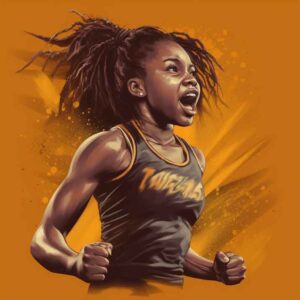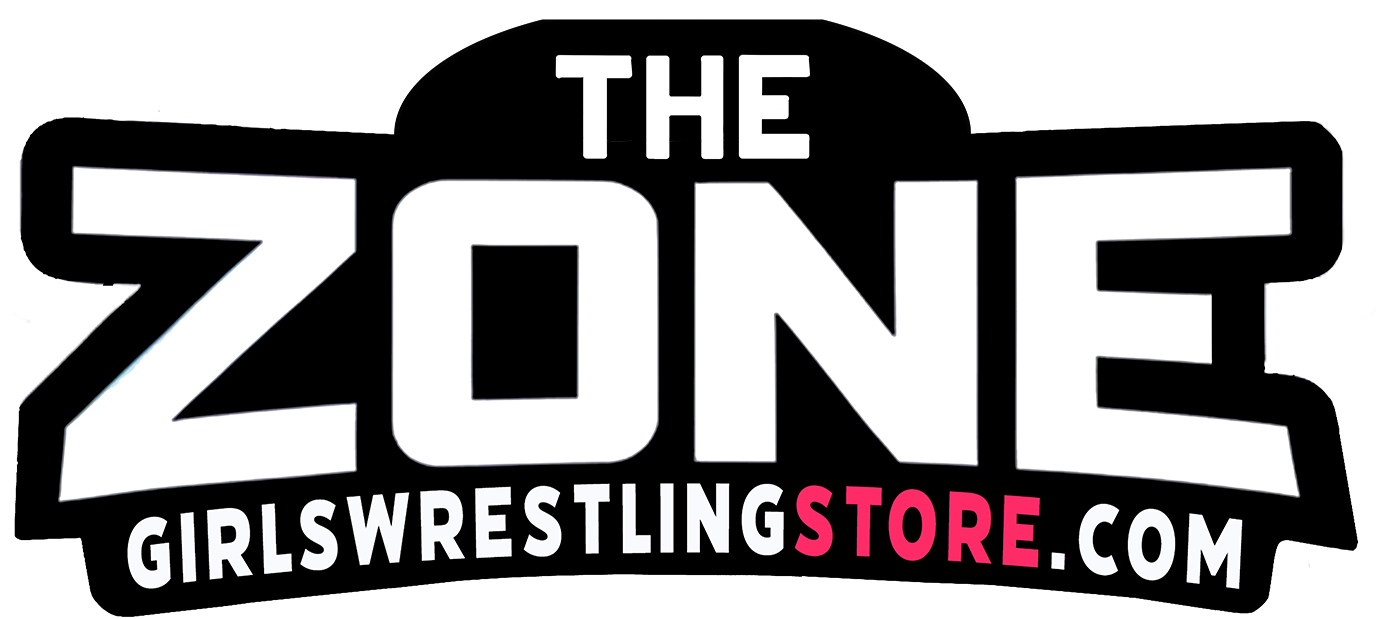Table of Contents
-
Introduction
- Overview of the Ideal Age for Girls to Start Wrestling
-
The Early Starters: Ages 5-10
- Benefits of Starting Young
- Risks and Considerations
-
The Late Bloomers: Starting in High School
- Emotional Maturity and Fresh Enthusiasm
- Physical Strength and Learning Curve
-
Balancing Act: Optimal Development Age
- Importance of Fun and Parental Role
- Physical and Psychological Benefits
-
Puberty: A Game-Changer in Wrestling
- Hormonal Changes and Psychological Edge
- Freshness and Opportunity
-
The Late Bloomers: Never Too Late to Start
- Advantages of Starting Late
- Strategies for Rapid Progress
-
Conclusion
- Summary and Recommendations
Wrestling is not just a sport; it’s a journey of physical and mental growth. But one question often looms large for parents and young athletes alike: “What’s the ideal age for girls to start wrestling?” It’s a question that has sparked debates, fueled parental anxieties, and even influenced coaching strategies. While some argue that early exposure lays the foundation for future success, others caution against the risks of burnout and stress. So, what’s the truth?
In this article, we’ll delve into the age-old debate, examining the pros and cons of starting at various ages. We’ll also explore the often-overlooked role of parental involvement and the critical importance of making the sport enjoyable for young athletes. Whether you’re a parent contemplating enrolling your daughter in her first wrestling class or a young wrestler wondering if now is the right time to step onto the mat, this article aims to offer valuable insights.
A study called “Youth sport: positive and negative impact on young athletes” by Donna L Merkel suggest that the “right age” is less about the number and more about the individual’s readiness, both physically and emotionally. So, buckle up as we pin down the facts and grapple with the complexities of this multi-faceted issue.
The Early Starters: Pros and Cons of Wrestling from Ages 5-10
 The Benefits of an Early Start
The Benefits of an Early Start
Starting wrestling at a young age offers a plethora of advantages. Young minds are like sponges, eager to absorb new techniques and strategies. The early years provide an excellent opportunity for girls to develop fundamental skills that will serve as the building blocks for more advanced techniques later on. Additionally, early involvement in wrestling can significantly aid in understanding body mechanics, enhancing general coordination, and boosting overall fitness levels.
The Risks of Starting Too Early
However, an early start is not without its pitfalls. A leader in the Wrestling community, Cary Kolat states his concern of starting to young in his blog post “We Compete too Soon” The risk of burnout is real, and the pressure to perform can be overwhelming for young athletes. Parents, too, often project their ambitions onto their children, which can turn a fun, educational experience into a high-stakes game. Who hasn’t seen a parent act inappropriately with their child when their child does not perform as expected? It’s often a very cringe-worthy moment that highlights the emotional toll this can take on young wrestlers.
The Verdict on Early Starts
So, should your daughter start wrestling between the ages of 5 and 10? The answer is nuanced. If the focus is on fun, skill development, and fostering a love for the sport, an early start can be beneficial. However, if the environment is overly competitive and stressful, it might be worth waiting a few years.
The Late Bloomers: Wrestling Success for Girls Starting in High School
Emotional Maturity and Resilience
Starting wrestling in high school means girls are generally more emotionally mature. They can better handle the pressures and challenges that come with the sport, making them more resilient in the face of adversity.
Fresh Enthusiasm and Passion
High school starters often bring a unique zeal to the wrestling mat. Unlike their younger counterparts who may be experiencing burnout, these late bloomers are usually eager to learn and improve, adding a fresh dynamic to the sport.
H3: Physical Strength and Coordination
By high school, girls have more developed physical strength and coordination. These attributes can be significant advantages in wrestling, allowing them to quickly catch up to or even surpass those who started earlier.
The Learning Curve and Time Constraints
While starting late has its perks, it also presents challenges like a steep learning curve and less time to master the basics. However, with dedicated coaching and a strong will to succeed, these hurdles can be overcome.
The Unique Opportunity in Girls Wrestling
The sport of girls wrestling is still in its infancy in many high schools, meaning many competitors may not have extensive youth wrestling experience. This levels the playing field for late starters, giving them a unique opportunity to excel even if they are new to the sport. The choice of whether to wrestle against boys or in girls-only divisions can also influence when to start the sport.
The Balancing Act: When to Start Wrestling for Optimal Development
 The Importance of Fun and Enjoyment
The Importance of Fun and Enjoyment
The wrestling mat should be a canvas where young girls paint their athletic journey, not a pressure cooker of expectations. One way to keep the fun alive is by turning practice into a scavenger hunt. Before each session, give your child a new wrestling move to “discover” and master. Reward their curiosity with a healthy post-practice treat, like a fruit smoothie. Keeping the sport enjoyable is crucial for long-term engagement, and that often starts with how practices and tournaments are conducted.”
The Role of Parents in Youth Wrestling
As parents, think of yourselves as the wind beneath their wings, not the weight on their shoulders. Establish a fun, post-practice ritual like a quick game of tag or a walk in the park. This not only helps them unwind but also creates a positive association with wrestling.
The Physical Benefits of Early Exposure
Starting early in wrestling is like giving your child a Swiss Army knife of physical skills. To enhance this, incorporate games that teach body control and balance into their routine. A game of “Simon Says” with wrestling stances can be both fun and educational. Wrestling offers a unique blend of physical and mental benefits that can enrich a young girl’s life in many ways.”

The Psychological Aspects: Confidence and Self-Esteem
Wrestling can be a mirror reflecting your child’s growing confidence. To keep that reflection positive, create affirmation cards with uplifting quotes or mantras that they can read before a match.
The Community Aspect: Building Lifelong Friendships
Wrestling isn’t just about the individual; it’s also about the community. Encourage your child to participate in team-building activities outside of practice. Whether it’s a group hike or a community service project, these experiences can weave the thread of lifelong friendships.
Questions and Answers
Q1: What are the benefits and risks of starting wrestling at a young age (5-10 years)? A1: Starting wrestling at a young age can help develop fundamental skills, body mechanics, and overall fitness. However, risks include burnout and the pressure to perform, which can be overwhelming for young athletes.
Q2: How does starting wrestling in high school differ from starting at a younger age? A2: Starting wrestling in high school means girls are more emotionally mature and can handle the sport’s pressures better. They bring fresh enthusiasm and have more developed physical strength, but they face a steeper learning curve and less time to master the basics.
Q3: What is the importance of making wrestling enjoyable for young athletes? A3: Keeping wrestling enjoyable is crucial for long-term engagement. Fun practices and positive post-practice rituals help create a positive association with the sport, crucial for maintaining interest and preventing burnout.
Q4: Why is puberty considered a game-changer for girls in wrestling? A4: Puberty brings a surge of hormones that enhance athletic performance, including increased strength, agility, and stamina. Girls also develop a mental resilience that can be advantageous in both training and competitions.
Q5: Is it too late to start wrestling as a late bloomer? A5: It’s never too late to start wrestling. Late bloomers often bring maturity and untapped potential, which can be advantageous. With intensive training, mentorship, and video analysis, they can quickly catch up and excel in the sport.
The Golden Years: Why Puberty is a Game-Changer in Wrestling

The Hormonal Boost
Puberty is like flipping a switch in the wrestling world. The surge of hormones not only changes the body but also enhances athletic performance. Girls experience increased strength, agility, and stamina, making it a prime time to dive into the sport seriously.
The Psychological Edge
By the time girls hit puberty, they’ve often developed a mental resilience that’s akin to a wrestler’s grip—unyielding and focused. This psychological edge can be a significant advantage in both training and competitions.
The Freshness Factor
Starting wrestling during puberty can be like a breath of fresh air in a stuffy room. Unlike their peers who may have started at a younger age, these girls are less likely to experience burnout and more likely to bring a fresh perspective and enthusiasm to the sport.
Tools for Keeping the Passion Alive
- Goal Setting: Encourage your child to set achievable goals, whether it’s mastering a new move or winning a local tournament. Celebrate these milestones to keep the enthusiasm high.
- Family Support: Create a post-match ritual that the family can look forward to, like a healthy dinner outing or a movie night.
- Skill-Building Activities: Incorporate fun, skill-building activities outside of regular practice, such as yoga for flexibility or dance for coordination.
The Rise of Female Wrestling
With female wrestling still in its infancy in many high schools, girls starting at this age often find themselves on a more level playing field. They’re not competing against boys who’ve been wrestling since they were toddlers, giving them a fair shot at excelling quickly.
The Late Bloomers: It’s Never Too Late to Start Wrestling
 The Underdog Advantage
The Underdog Advantage
Being a latecomer to wrestling can feel like entering a race halfway through, but sometimes the tortoise does beat the hare. Late bloomers often bring a unique blend of maturity and untapped potential that can surprise even seasoned competitors.
The Element of Surprise
Starting late can be like pulling a rabbit out of a hat; opponents don’t know what to expect. This unpredictability can be a strategic advantage, keeping competitors on their toes.
Tools for Quick Progress
- Intensive Training: Consider short but intensive training camps to quickly get up to speed.
- Mentorship: Pairing up with a more experienced wrestler can provide invaluable insights and shortcuts to success.
- Video Analysis: Use video footage of matches to identify strengths and weaknesses, turning them into opportunities for growth.
The Joy of the Journey
Late bloomers often have the luxury of not being burdened by years of expectations or potential burnout. This can make the wrestling journey more enjoyable and less stressful, allowing them to focus on the love of the sport.
The Changing Landscape of Female Wrestling
As female wrestling gains more recognition and support, the opportunities for late starters are increasing. Scholarships, specialized training programs, and even professional leagues are making it easier for girls who start late to catch up and excel.
Conclusion: So, What’s the Right Age for Girls to Start Wrestling?
The question that brought us here—what’s the right age for girls to start wrestling—doesn’t have a one-size-fits-all answer. However, the consensus leans towards the idea that starting at a young age can be beneficial for physical development, socialization, and fun. The caveat? Keep it about the joy of the sport, not the pressure of competition.
For most girls, diving into the wrestling world around ages 8 to 10 yields excellent results. These formative years offer a balance between physical readiness and mental maturity, making it an ideal time to engage in the sport seriously. But remember, the wrestling mat knows no age limit. There are countless stories of girls who took up wrestling in their senior year of high school and are now competing at the college level.
Your Call to Action
So, if you’re a parent contemplating when to introduce your daughter to wrestling, or a young girl wondering if it’s too late to start, take the plunge. Equip yourself with the right tools, foster a supportive environment, and above all, make it fun. The wrestling community is ready to welcome you, no matter your age or skill level. Ultimately, wrestling can be a transformative experience, offering more than just physical benefits.
And for those looking to gear up for their wrestling journey, don’t forget to check out GirlsWrestlingStore.com’s “The Zone,” your one-stop-shop for all things wrestling. From activewear to accessories, we’ve got you covered.
And that’s the final bell. Whether you’re a parent, coach, or young athlete, the time to act is now. Let’s make the wrestling experience enjoyable, empowering, and inclusive for all.
Questions and Answers
Q1: What are the benefits and risks of starting wrestling at a young age (5-10 years)? A1: Starting wrestling at a young age can help develop fundamental skills, body mechanics, and overall fitness. However, risks include burnout and the pressure to perform, which can be overwhelming for young athletes.
Q2: How does starting wrestling in high school differ from starting at a younger age? A2: Starting wrestling in high school means girls are more emotionally mature and can handle the sport’s pressures better. They bring fresh enthusiasm and have more developed physical strength, but they face a steeper learning curve and less time to master the basics.
Q3: What is the importance of making wrestling enjoyable for young athletes? A3: Keeping wrestling enjoyable is crucial for long-term engagement. Fun practices and positive post-practice rituals help create a positive association with the sport, crucial for maintaining interest and preventing burnout.
Q4: Why is puberty considered a game-changer for girls in wrestling? A4: Puberty brings a surge of hormones that enhance athletic performance, including increased strength, agility, and stamina. Girls also develop a mental resilience that can be advantageous in both training and competitions.
Q5: Is it too late to start wrestling as a late bloomer? A5: It’s never too late to start wrestling. Late bloomers often bring maturity and untapped potential, which can be advantageous. With intensive training, mentorship, and video analysis, they can quickly catch up and excel in the sport.




